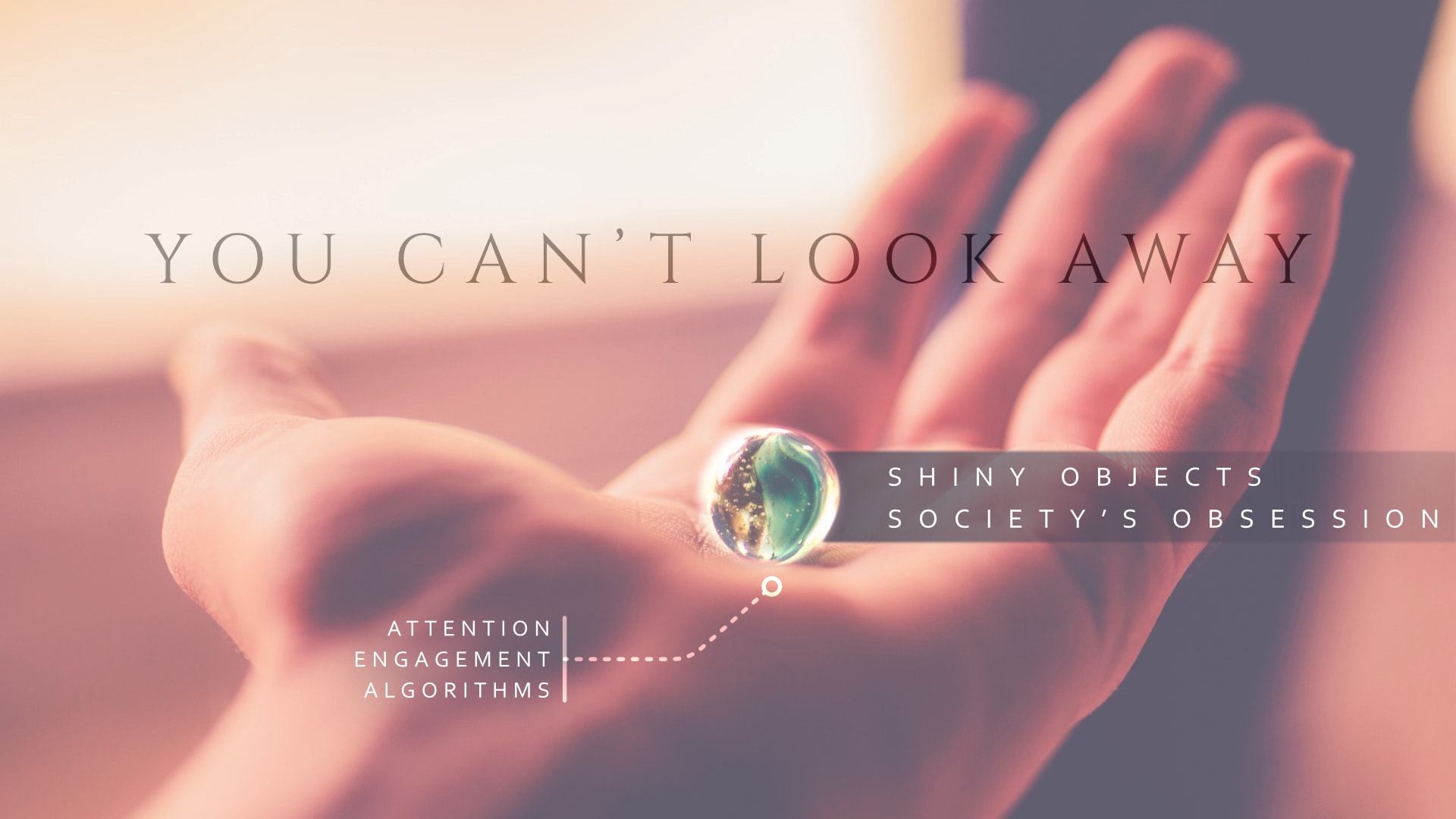The Catastrophe of Shiny Objects
post by mindprison · 2024-11-18T00:24:28.876Z · LW · GW · 0 commentsContents
No comments
The architects of the modern digital landscape, are optimizing all creations to exploit our desires, the need and love for attention and the disdain for boredom. The result is a world in which our attention is the basis of the new economic model, to be harvested and monetized with ruthless efficiency. Attention is the new society's gold, being both the currency and object of irresistible appeal.
We wish to be entertained, to be cured of our boredom; every activity and task must be gamified, tracked, and rewarded so that we can complete our daily activities with maximum stimulation to our brains.

But what is the effect of the constant, never-ending stimulation that is nearly inescapable, as every mechanism, device, and service we utilize attempts to never let us go in peace? What is the toll this takes on our minds? What are we sacrificing in order to escape boredom?
Boredom is the prelude to profound discoveries.
It is the healthy state of mind which precedes moments of deeper introspection of the world.
Some will seek to cure you of your boredom, but they will take from you much more. -- Mind Prison
We must consider that optimizing for attention may be detrimental to other aspects of interaction. If the devices, media, and tools that we use optimize for the purpose of keeping us engaged with those things, that can be in direct opposition to optimizing for the efficiency of their use. I would be more productive if I could use things less and accomplish more, but all incentives are for me to simply use everything more and more.
Everything sends you a notification to keep you interested. Every app is saying on repeat, "Hey don't forget about me!" And the scale of all of this becomes enormous due to the number of devices and services we interact with, combined with the fact they are all in competition with each other. So, they are constantly researching how to keep you engaged with them versus something else.
So what happens when we extinguish long periods of boredom? Have we simply cured a malady of the human condition that we could all celebrate we are happy to do without? Or have we inadvertently intervened in a natural process that leads to our greatest potential?
Periods of boredom are essential for our brains "reset," where we enter modes of introspection and exploration. The problem is that the initial onset of boredom is uncomfortable and the benefits do not come immediately. We must persist through the uncomfortable state until the mind enters its creative mode, where it seeks to resolve its own boredom unaided by external stimuli.
Once we have successfully made it to the other side, the mind is in a greater state of natural exploration in which creativity, problem-solving, and introspection are enhanced. It is an oasis of insight that can only be reached by a trek through the desert of boredom.

We must begin questioning the trajectory on which we have oriented technology and its relation with civilization. If we continue building ever more enticing, attention-stealing behaviors into everything we build, that will be significantly enhanced further by AI, which will optimize for these aspects beyond what we could do before. What becomes of us all?
What skills are involved during childhood to develop the ability to cope with boredom? We suspect it is play and narrative. To being able to avoid boredom during childhood must be related to the extent to which a child is able to play by itself in a fun way for as long as possible. In addition, a lot of our conversations with fellow humans consist of telling stories and interesting episodes, so narrative abilities are important for our lives. Those narrative abilities are also acquired during childhood, and are related to thinking and imagination, which in turn lead to interest and motivation in many other things. In this sense, the developmental links between the “ability to play”, the “ability to tell stories” and the “ability to cope with boredom” could become topics of future research. -- The meaning of boredom
The race to solve our boredom may be hindering our own development of creativity, environmental adaptation, and cognitive skill. Whenever we artificially solve someone's boredom through shiny objects, we are intervening in a process that likely strengthens their mind and leads to improved future cognition. Paradoxically, it seems that some problems may be better left unsolved.
0 comments
Comments sorted by top scores.